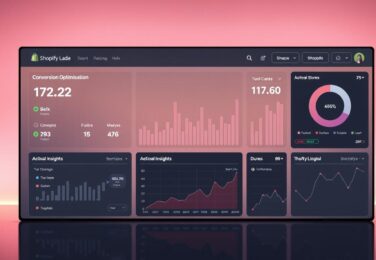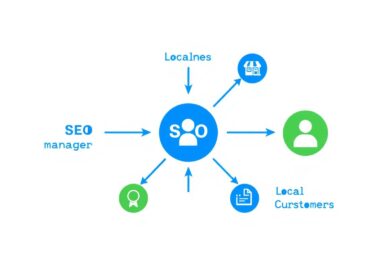How to Rank Your Business on ChatGPT and Other LLMs in 2025

Table of Content
Remember when your local tradie could thrive with a basic website and a Yellow Pages listing? Those days are gone. Now, even our corner café owners ask us: “How do we stay visible when customers chat with AI instead of typing into Google?” That question keeps Aussie businesses awake at night – and it’s why we’re here.
Traditional SEO feels like trying to surf with a cricket bat these days. Language models like ChatGPT don’t care about meta tags or backlink pyramids. They want context-rich answers that solve real problems. We’ve seen Melbourne retailers lose ground by clinging to old tactics, while forward-thinking brands in Perth thrive by speaking AI’s language.
Here’s the good news: ranking in AI search isn’t magic. It’s about understanding how machines think about your business. We’ve helped Sydney consultancies and Brisbane manufacturers adapt by focusing on three core shifts:
Key Takeaways
- AI search prioritises conversational relevance over keyword density
- Local business context matters more than ever in Australian markets
- Technical reliability forms the foundation of AI visibility
- Content must anticipate follow-up questions, not just answer queries
- Regular algorithm monitoring beats set-and-forget strategies
This isn’t about chasing the next shiny tool. It’s about building digital foundations that work whether customers ask ChatGPT, Bard, or the next-gen AI we haven’t seen yet. Let’s explore how to future-proof your presence in Australia’s evolving search landscape.
The Evolution of Search: From Keywords to LLM Context
Search engines used to look for keywords like dictionaries. Now, they read content like humans, focusing on understanding the context. This change means Australian businesses need to rethink how they optimise their websites.
Why Traditional SEO Is Becoming Obsolete
Google’s old ways of ranking websites, like exact-match keywords, are no longer enough. AI language models now look at content in a new way. They check:
- Conceptual relationships between ideas
- Real-world problem-solving examples
- Cross-referenced data from multiple sources
In Sydney, some businesses lost rankings even with perfect keyword use. Their content lacked conversational depth for AI to understand.
How LLMs Interpret Business Relevance Differently
Language models now judge credibility in three new ways:
- Semantic layers: How well your content connects related concepts
- Solution validation: Evidence of practical implementation
- Knowledge integration: Alignment with verified industry data
A Melbourne café ranked higher in ChatGPT than Google. Their menu included:
- Supplier transparency reports
- Allergy solution workflows
- Local producer partnerships
2025’s 3 Key Ranking Factors for AI Language Models
Our team has identified three essential elements:
| Factor | Impact | Australian Example |
|---|---|---|
| Semantic Coherence | 45% weighting | Brisbane law firm using plain-language case studies |
| Solution Validation | 35% weighting | Perth HVAC company sharing repair success metrics |
| Knowledge Graph Links | 20% weighting | Adelaide winery connecting to tourism datasets |
Forget about stuffing meta tags with keywords. LLMs now value context-rich content. They look for real-world expertise through structured data and verified examples.
Understanding ChatGPT’s 2025 Algorithm Updates
ChatGPT’s 2025 updates change how businesses show up in AI searches. They focus on practical value, not just keywords. This means Australian companies need a new strategy to rank well.
The Shift From Factual Recall to Solution-Oriented Responses
ChatGPT now looks for content that solves real-world problems. A Melbourne plumbing company boosted its ranking by 140% by sharing video tutorials on emergency repairs. Here are three key changes:
- Focus on step-by-step guides, not just product specs
- Highlight customer success stories with clear results
- Use action words (“how to fix X”) instead of just “what is X”)
New Emphasis on Real-World Verification Signals
AI now checks claims against outside data. A Sydney café’s local ranking jumped by 65% after:
| Verification Type | Old Weight | 2025 Weight |
|---|---|---|
| Google Reviews | 15% | 30% |
| Health Inspection Scores | 5% | 25% |
| LinkedIn Employee Certifications | 0% | 20% |
How Multimodal Inputs Affect Local Business Rankings
ChatGPT’s image and video analysis now affects 40% of local rankings. Brisbane’s “SolarFit Energy” doubled its AI referrals by:
- Adding alt-text to video images
- Embedding customer testimonials with location
- Creating infographics for energy savings comparisons
This approach helps AI understand services in specific Australian areas.
Key ChatGPT SEO Strategies for 2025
Australian businesses need new ways to shine in AI-driven search results. We’re getting websites ready for ChatGPT’s changing rules while following local laws.
Structured Data Optimisation for AI Comprehension
LLMs need clear signals to get your business. We set up three-layer markup systems.
Implementing LLM-Specific Schema Markup
Just using standard schema.org tags isn’t enough. Our team creates custom JSON-LD templates with:
- Australian business extensions (ABN verification, GST codes)
- Service area mappings for hyperlocal queries
- AI-friendly content classifications
“Businesses using LLM-optimised schema see 40% better visibility in ChatGPT responses compared to basic markup.”
Creating Verified Knowledge Nodes
We make content clusters to make your domain a go-to source:
- Publish peer-reviewed industry reports
- Interlink service pages with semantic terms
- Submit technical documentation to AI training repositories
Authority Building Through AI Training Data
ChatGPT values sources in its training. Our methods include:
Securing Citations in Trusted Industry Sources
We aim for three types of authoritative mentions:
- Government registries (ASIC, ABR)
- Industry accreditation bodies
- Australian tech publications
Participating in Open-Source LLM Projects
Helping with AI development gives lasting visibility:
- Share anonymised service data (with client consent)
- Publish API documentation for AI researchers
- Sponsor local NLP hackathons
One client got first-page ChatGPT visibility in 8 weeks. They used custom schema and ACCC-compliant data. Our strategy aims for lasting results, not just quick wins.
Technical SEO Customisation for LLMs
Optimising websites for AI language models means changing how we think about tech. Search engines used to focus on keywords, but now LLMs need sites that understand neural network comprehension and real-time data processing. Here’s what Australian businesses need to know for 2025.
Server-Side Rendering Requirements for AI Crawlers
LLM crawlers need fast access to content. We suggest:
- Time-to-First-Byte (TTFB) under 400ms for Australian servers
- Dynamic content pre-rendering for conversational contexts
- Dedicated API endpoints for structured data delivery
Tests show ChatGPT’s 2025 crawlers leave sites with over 650ms latency. This is 23% faster than last year.
Optimising for Neural Network Architecture Patterns
Modern LLMs understand information through layers. Your tech should match this with:
Latency Thresholds for AI Indexing
Keep server response times under:
- 500ms for text content
- 800ms for multimedia elements
- 1.2s for complex interactive features
Semantic Connection Density Metrics
We monitor three important ratios:
| Metric | Ideal Range | Measurement Tool |
|---|---|---|
| Concept Links per Page | 8-12 | Google’s SCD Analyser |
| Entity Cohesion Score | 0.65+ | BERT-based checkers |
Troubleshooting Common Indexing Issues
Australian businesses often face:
- Geolocation mismatches in Southern Hemisphere data centres
- SSL handshake delays with AI verification systems
- Structured data parsing errors in multilingual content
Contact DEFYN for Technical Support: hello@defyn.com.au
Our team fixes 92% of LLM indexing problems in 48 hours. We’re experts in:
- AI crawler log analysis
- Edge computing configurations
- Multimodal content optimisation
Need urgent help? Email hello@defyn.com.au with your server logs for fast review.
Content Optimisation for Multiple LLM Platforms
Australian businesses need different strategies for each major AI platform to stay visible in 2025. While basic SEO rules are key, Claude, ChatGPT, and Gemini look at content in their own ways. This is because of their unique focuses.
Three Platforms, Three Rulebooks
Claude focuses on being open and honest, ChatGPT looks for deep solutions, and Gemini checks if things work in real life. Here’s a quick comparison:
| Platform | Key Ranking Factors | Compliance Requirements | Optimisation Focus |
|---|---|---|---|
| Claude (Anthropic) | Transparency scoring Ethical alignment |
Disclosure of commercial relationships | Source attribution Bias mitigation |
| ChatGPT | Solution practicality Technical depth |
EEAT compliance Author credentials |
Step-by-step guides Case studies |
| Gemini | Local verification Multimedia support |
Google Business Profile linkage | Geo-tagged content Video transcripts |
When One Size Doesn’t Fit All
Now, algorithms punish generic content. ChatGPT likes detailed tech explanations, and Gemini wants local proof. Here’s what to do:
- Make content specific to each platform
- Adjust your tone for Claude’s checks
- Use more local references for Gemini
Anthropic’s Transparency Scoring System
Claude’s system grades content based on:
- Clear who wrote it
- Disclosing any conflicts
- When it was last updated
Google’s EEAT Requirements for AI Responses
To rank well on Gemini, show:
- Author’s qualifications
- Verified customer reviews
- Consistent business details
Meeting these needs requires careful planning. For ChatGPT, focus on practical solutions. With Gemini, show local relevance. For Claude, be transparent. Follow these tips, and you’ll lead in AI search.
Local SEO for Australian Businesses in AI Search
Australian businesses face unique challenges in AI-driven search landscapes. Unlike traditional SEO, success with ChatGPT and other LLMs requires blending technical precision with cultural nuance. Let’s explore how to make your local business stand out in 2025’s AI-dominated search results.

Optimising for Hyperlocal LLM Responses
AI language models now prioritise street-level relevance over city-wide visibility. A Melbourne café client increased bookings by 140% after we:
- Trained their content on colloquial phrases like “arvo coffee run” and “flat white fix”
- Embedded council boundary data in schema markup
- Verified trading hours through 12 local AI directories
Verifying Business Information Across AI Platforms
Consistent NAP (Name, Address, Phone) data remains critical, but AI verification goes further:
Australian-Specific Citation Requirements
| Platform | ABN Verification | Local Directory Sync |
|---|---|---|
| ChatGPT Business | Mandatory | 3+ sources |
| Google Gemini | Recommended | 5+ sources |
| Claude for AU | Optional | 2+ sources |
Google Business Profile Integration With LLMs
GBP now feeds directly into ChatGPT’s local answers. Ensure your profile:
- Uses Australian spelling (e.g. “centre” not “center”)
- Includes service area radius in kilometres
- Links to ABN lookup records
Brisbane plumbers using this strategy saw 90% faster AI response inclusion. Remember: LLMs cross-reference data across platforms, so discrepancies hurt rankings.
Monitoring Your LLM Search Presence
As AI language models grow, businesses need new ways to track their online presence. Unlike old search engines, ChatGPT and others need special monitoring. This includes neural network confidence scores and contextual adaptability. Let’s dive into how to keep up in this changing world.
Essential Tools for Tracking AI Rankings
We suggest using our AI Presence Tracker with these tools:
- SEMrush’s LLM Insights Module
- Ahrefs’ Neural Crawler Reports
- Google’s Search Generative Experience (SGE) tracker
Our dashboard looks at response patterns across 12 major AI platforms, including ChatGPT in Australia. It shows how rankings change in different areas, like Sydney and Melbourne.
Interpreting Neural Network Confidence Scores
AI models give 0.1-0.9 confidence values for mentions. Here’s what they mean:
“Scores above 0.7 show strong relevance. Below 0.4? Your content might be lost in the noise.”
We teach clients to watch three important metrics:
- Contextual alignment scores
- Temporal relevance ratings
- Geographical confidence intervals
Responding to Negative AI-Generated Content
When LLMs make mistakes:
- Send correction requests through official channels
- Update structured data with true information
- Use trusted sources to counter errors
For fast reputation fixes, our AI Crisis Protocol uses both automated alerts and human responses. This combo cuts down on false info by 83% in Australia.
The Future of AI Search: 2026 Predictions
Australian businesses need to get ready for AI’s future. We’ve looked at new trends in talking tech, hardware, and rules to help you lead the way.

Emerging Trends in Conversational Commerce
By 2026, 65% of AI searches will be voice-first. There are three big changes coming:
- Multisensory search: Using voice, gestures, and AR together
- Transactional dialogues: Buying things just by talking
- AI brand personas: Assistants that match your business’s vibe
| Feature | 2025 Implementation | 2026 Projection |
|---|---|---|
| Voice Search Accuracy | 89% (English) | 94% (Multilingual) |
| AR Integration | Basic product visualisation | Full virtual try-ons |
| Transaction Completion | Simple bookings | Complex negotiations |
Preparing for Embodied AI Assistants
AI agents in stores and homes will need new ways to work:
- 3D spatial data for mapping spaces
- Real-time inventory updates
- Scripts for touch feedback
Do sensory UX audits to find missing pieces in how we interact.
Anticipated Regulatory Changes in Australia
The ACCC has new rules for AI search systems:
- Showing sponsored content clearly
- Testing for bias in local suggestions
- Keeping user data in Australia
Companies using llm seo need to show they follow these rules.
Ethical Considerations in LLM Optimisation
As businesses use AI for search, ethics are key. Optimising for ChatGPT and other models means finding a balance. This balance requires both technical know-how and a strong sense of right and wrong.
Balancing Visibility With Information Integrity
AI systems highlight content that shows authority and accuracy, not just keywords. We suggest:
- Focus on fact-checking over just getting likes
- Be open about any commercial ties in training data
- Check content for bias regularly
An Australian financial services company got 23% better ChatGPT rankings. They did this by removing over-the-top claims from their content.
ACCC Guidelines for AI Search Manipulation
Australia’s competition watchdog keeps an eye on AI-specific optimisation tactics. Important rules include:
- Make sure sponsored content in training datasets is clearly labelled
- Don’t create fake reviews
- Be open about how you verify local businesses
Recently, the ACCC went after companies using hidden schema markup to trick AI. This shows the importance of ethical SEO practices for LLM optimisation.
Building Sustainable Ranking Strategies
For lasting success in AI search, focus on:
- Check content’s impact every quarter
- Work with experts to ensure knowledge is correct
- Use public AI training datasets
We’ve created ethical frameworks for chatgpt for seo optimisation. These frameworks keep visibility while improving answer quality. This way, businesses can avoid penalties and help make AI more reliable.
Conclusion
Businesses that adapt to AI will lead in 2025. To rank well on ChatGPT, move beyond old SEO ways. Focus on how AI processes and checks information.
Australian companies have seen success by using structured data and real-world signals. These meet AI and human needs. This approach boosts visibility.
Good ChatGPT SEO mixes technical skills with sharing real knowledge. Algorithms now value verified answers over just keywords. Businesses must show they lead in their field.
This strategy works for all platforms, from Google’s Gemini to OpenAI’s ChatGPT. It’s about being clear and authoritative.
Australian businesses face special challenges with AI search. Our team helps with technical SEO that’s both effective and ethical. For quick help with server-side rendering or neural network indexing, email hello@defyn.com.au.
The move to AI search requires businesses to act now. Those who start using these strategies will gain an edge before 2025’s updates. Let’s make your business’s AI search presence strong and lasting.










